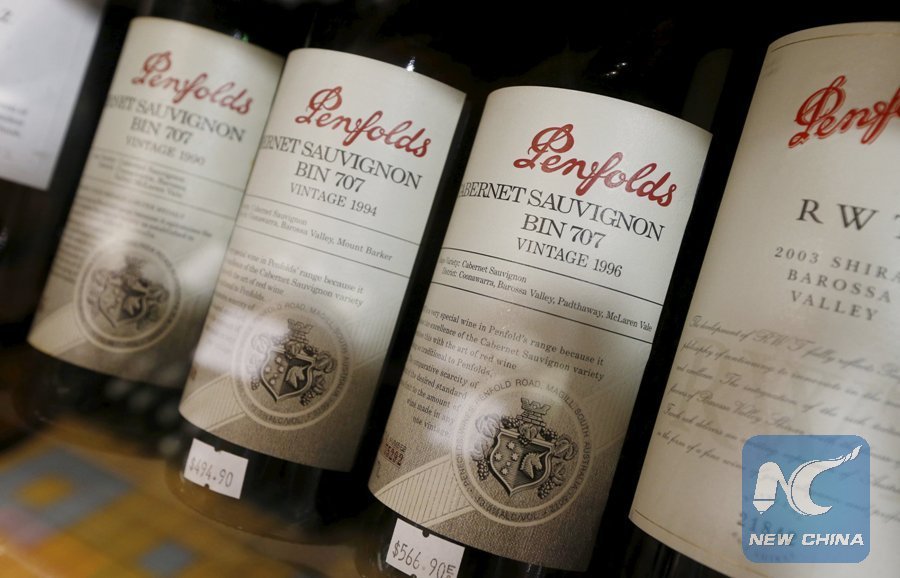
Wine produced in the United States is on display at a supermarket in Beijing, China, April 5, 2018. (Xinhua/REUTERS)
SAN FRANCISCO, April 8 (Xinhua) -- Despite the short term negative effects of sales, U.S. vintners are concerned about the potential backlash from Chinese consumers, said Michael Parr, vice president of international sales for Wente Family Estates, on Sunday.
The escalation of the tariff battle between the United States and China has made the California winemakers worry about the potential backlash from Chinese consumers not only on wines, but also on overall U.S. products.
There will be tremendous ramifications in terms of Chinese consumers' buying habit, said Michael Parr.
"I'm not talking about the 15 percent tariff, I'm talking about what people are willing to do based on supporting their country," said Parr, who has engaged in the Chinese market for 23 years.
"There could be pushback by Chinese consumers deciding to buy wines from other countries," he said, adding that they indeed have several choices," he explained.
Currently, wines from Chile, Georgia and New Zealand enter the Chinese market tariff free. Australia wines will be tariff free in China starting from 2019.

Bottles of Penfolds wines, one of the brands from the Treasury Wines group, are shown at a Sydney boutique wine store, Feb. 15, 2016. (Xinhua/REUTERS)
China is one of the fastest growing wine markets in the world, driven by the growing middle class and the millennial generation. It is expected to be the second only to the U.S. in value.
The exports of U.S. wine, 97 percent produced in California, have seen a 450 percent increase in the Chinese market in the past decade. Last year, the U.S. wine exports to the Chinese mainland and Hong Kong were up 10 percent in to 197 million U.S. dollars, according to California Wine Institute, an advocacy and research group representing more than 1,000 wineries.

Bottles of Chilean wine Viu Manent are displayed at a Duty free shop in Santiago's international airport, Chile, June 25, 2017. (Xinhua/REUTERS)
"Hopefully, the U.S. and Chinese leaders are going to utilize diplomacy and negotiations so that we can all put all of these trade wars behind us and move on," said Parr.
China started implementing a 15 percent added tariff on a total of 128 U.S. products, including wine, on April 2, in retaliation against U.S. President Donald Trump administration's proposed tariff on China's steel and aluminum.
President Trump on Thursday threatened to consider 100 billion U.S. dollars of additional tariffs on Chinese products in less than a week after the U.S. government announced new tariffs on 50 billion dollars worth of Chinese goods.
The Chinese Commerce Ministry responded on Friday that it will follow through to the end and will not hesitate to fight back at any cost.

